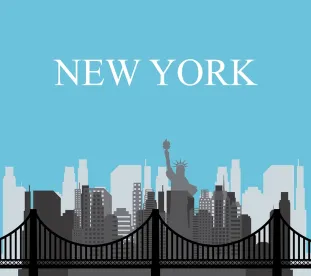Earlier this week, Governor Andrew Cuomo again advanced controversial legislation that would establish a state licensing regime for student loan servicers. The proposal, which is packaged as Part L of the governor’s proposed Transportation, Economic Development and Environmental Conservation Bill for fiscal year 2020, would require companies that service student loans held by New Yorkers to obtain a state license from the New York Department of Financial Services (NYDFS) and submit to onerous reporting and examination requirements. The proposal also would authorize NYDFS to seek—in addition to remedies already available to other New York and federal regulators—substantial penalties for enumerated categories of loan servicing misconduct.
Similar legislation has repeatedly failed in the past. Last year’s proposal, despite having support from the office of former New York Attorney General Eric Schneiderman, was “intentionally omitted” from the amended budget bill passed by the New York legislature; the same thing happened in 2017. Efforts to codify a “student loan borrower bill of rights” died in the Higher Education committees of the New York Assembly and Senate during the 2017-18 legislative session.
This year’s proposed licensing scheme differs significantly from previous efforts in several respects. First, it expressly includes a limited carve-out for entities that service federal student loans (i.e., those issued under the William D. Ford Federal Direct Loan Program, or issued under the Federal Family Education Loan Program and later purchased by the federal government). That provision was most likely included in response to the recent federal court opinion holding that federal law partially preempted the District of Columbia’s like-minded attempt to license student loan servicers. The New York proposal would still, however, leave servicers of federal student loans subject to penalty for failure to satisfy certain notice obligations or adhere to the aforementioned substantive standards of operation. Those provisions are likely to continue to present preemption issues.
Also unlike previous efforts, the FY 2020 proposal provides for substantial penalties for violations of the proposed licensing scheme. Proposed penalties are capped at the greater of (1) $10,000 per offense; (2) double the actual damages caused by the violation; or (3) double the “aggregate economic gain” attributable to the violation. The new proposal drops calls for a student loan ombudsman within NYDFS. It also abandons provisions from the prior year’s draft that would have imposed restrictions on student debt consultants and prevented certain state licensing boards from denying a professional license because of an applicant’s student debt.
Whether these changes will be enough to persuade the New York legislature to adopt a measure that it has repeatedly rejected, and that is all but certain to face additional challenges in federal court, remains to be seen.



 />i
/>i
